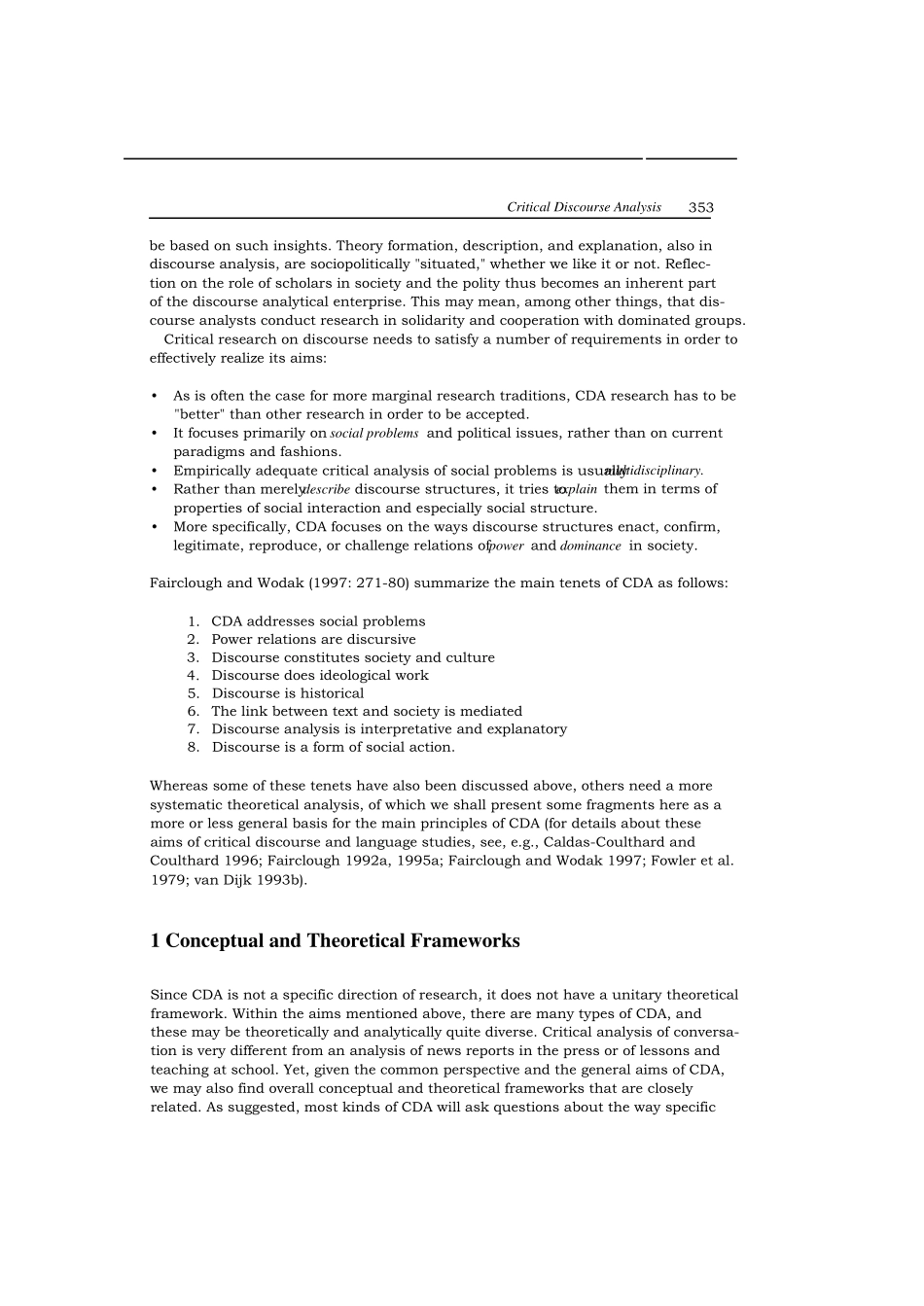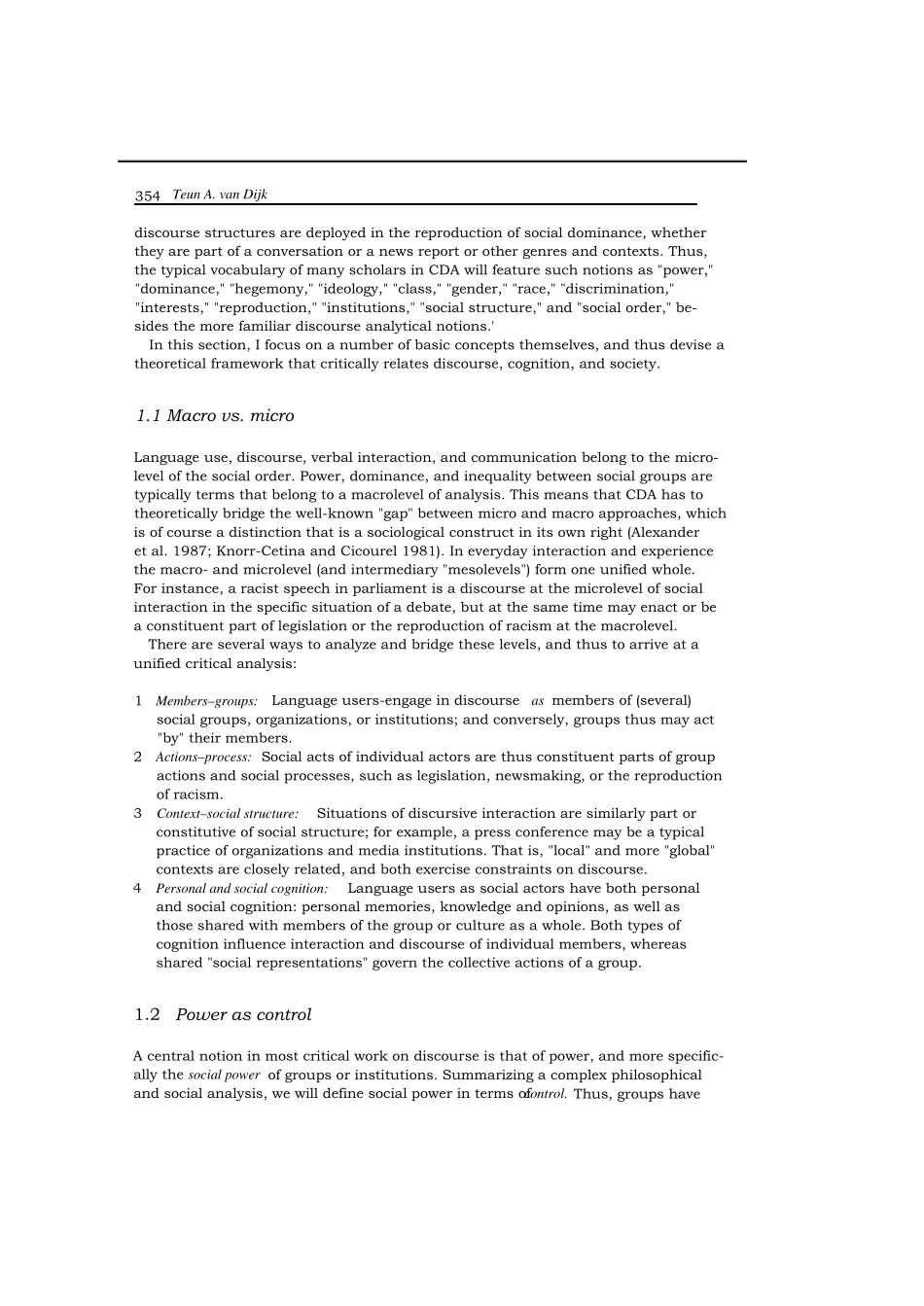18 Critical Discourse AnalysisTEUN A. VAN DIJK0 Introduction: What Is Critical Discourse Analysis?Critical discourse analysis (CDA) is a type of discourse analytical research that prim-arily studies the way social power abuse, dominance, and inequality are enacted,reproduced, and resisted by text and talk in the social and political context. Withsuch dissident research, critical discourse analysts take explicit position, and thuswant to understand, expose, and ultimately resist social inequality.Some of the tenets of CDA can already be found in the critical theory of theFrankfurt School before the Second World War (Agger 1992b; Rasmussen 1996). Itscurrent focus on language and discourse was initiated with the "critical linguistics"that emerged (mostly in the UK and Australia) at the end of the 1970s (Fowler et al.1979; see also Mey 1985). CDA has also counterparts in "critical" developments insociolinguistics, psychology, and the social sciences, some already dating back to theearly 1970s (Birnbaum 1971; Calhoun 1995; Fay 1987; Fox and Prilleltensky 1997;Hymes 1972; Ibanez and Iniguez 1997; Singh 1996; Thomas 1993; Turkel 1996; Wodak1996). As is the case in these neighboring disciplines, CDA may be seen as a reactionagainst the dominant formal (often "asocial" or "uncritical") paradigms of the 1960sand 1970s.CDA is not so much a direction, school, or specialization next to the many other"approaches" in discourse studies. Rather, it aims to offer a different "mode" or"perspective" of theorizing, analysis, and application throughout the whole field. Wemay find a more or less critical perspective in such diverse areas as pragmatics,conversation analysis, narrative analysis, rhetoric, stylistics, sociolinguistics, ethno-gra...


